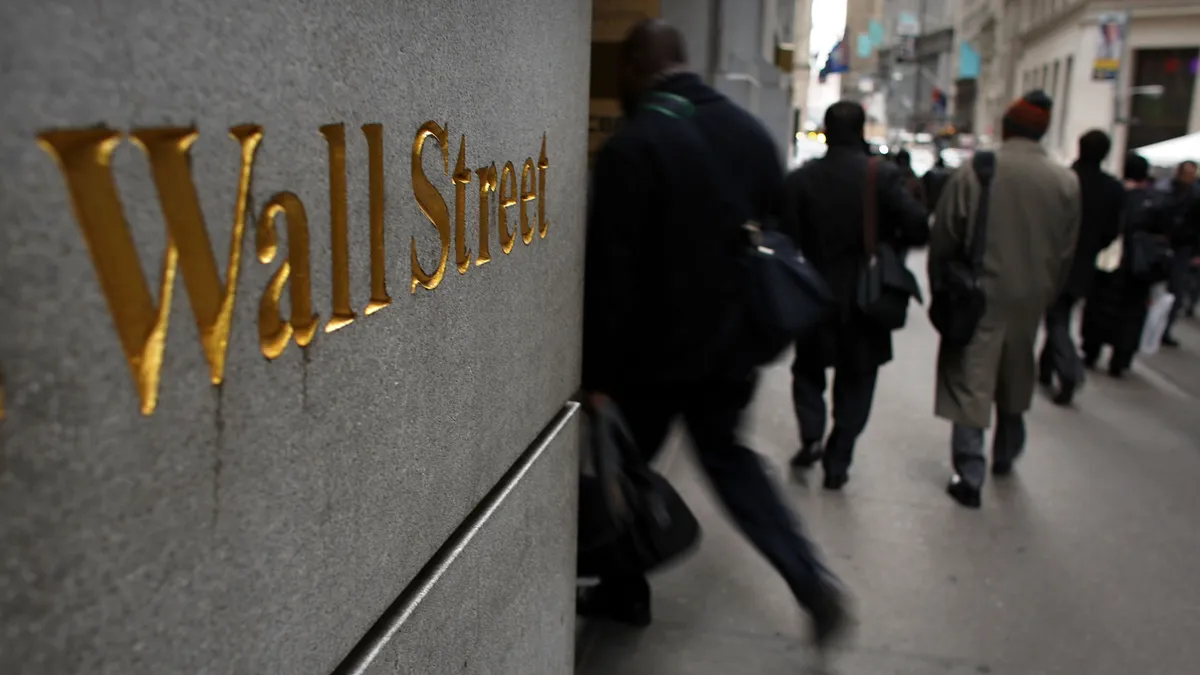Medtech earnings season starts this week with a batch of results that will give an indication of the state of the industry at this point in the pandemic. Intuitive Surgical and Johnson & Johnson are set to report results that will shed light on the recovery of elective procedures, while Abbott Laboratories will provide insights into the drop in COVID-19 test demand.
Intuitive will get the earnings season underway on Tuesday. The robotic surgery leader is coming off a quarter in which it recovered from the winter spike in COVID-19 cases, and its negative effect on elective procedures, to post results that beat analyst expectations. Intuitive felt confident enough in the stability of the vaccine-fueled recovery from COVID-19 in its key markets to forecast 22% to 26% procedure growth in 2021.
If the positive trends seen at the end of the first quarter continue, Intuitive CFO Marshall Mohr said the company could hit the top end of the range. The bottom end of the range reflects the expected growth if vaccine rollouts fall short of government targets and there are resurgences in the virus.
Intuitive's second quarter covers April, May and June. The U.S., which accounts for 70% of Intuitive's procedure volumes, had falling to flat numbers of COVID-19 cases throughout that period. However, cases have since begun to tick up nationally and surges are underway in Arkansas and Missouri. Crucially for medtech, the surges are translating into pressure on healthcare. One Missouri hospital said it is now busier than at any time in the COVID-19 crisis.
The outbreak in Missouri is being driven by the Delta variant that is behind rising case numbers in Europe. In the U.K., where Delta took hold earlier than in other countries, a major hospital canceled planned operations for two days last week because of a jump in COVID-19 cases. Yet, the U.K. lifted restrictions intended to slow the spread of the virus on Monday and is potentially weeks away from daily hospital admissions due to COVID-19 hitting record highs.
A high level of vaccine uptake could stop the U.K. wave before it disrupts the provision of healthcare to the extent that it affects Intuitive's results. Last month, before the size of the current U.K. wave became clear, Mohr said he expected Intuitive sales to "see some level of recovery in U.K." The situation in the U.K. is being echoed in other European countries such as the Netherlands, although their governments have been willing to reimpose restrictions to suppress cases.
Disruption to healthcare has near and long-term consequences for Intuitive. The immediate effect of canceled procedures is compounded by the impact on the diagnostic pipeline. If fewer people have colonoscopies, CT scans and other diagnostic procedures because of resurgences in COVID-19 today, there will be fewer procedures down the line. The pipeline is still recovering from the impact of the earlier waves of cases.
"There is a backlog of patients waiting that we think will come to fruition," Mohr said. "It will probably take between now and sometime well into 2022 before that all shakes out. That’s assuming that there are no awful variant and resurgences that occur."
J&J, which reports results on Wednesday, is subject to the same pressures on elective procedures as Intuitive, although its product mix means there are some differences. In the first quarter, J&J saw its device unit return to growth but the picture was mixed even within franchises, with hip sales growing by 3.2% while knee revenues fell 9.9%.
Talking to investors last month, J&J CEO Alex Gorsky said sales in trauma and other less elective areas were coming "back very strong." Revenues from orthopaedic devices were lagging behind but starting to return, the CEO said.
How quickly orthopaedic sales return at J&J in the second quarter will provide an indication of the likely performance of rival companies that will report results in later weeks, such as Strkyer and Zimmer Biomet. Analysts at J.P. Morgan expect Stryker to "deliver a strong 2Q on the back of MedSurg and raise EPS guidance some," but warned Zimmer "management sounded somewhat less bullish than others intra-quarter and the stock has lagged."
Abbott will complete the first week of medtech earnings when it posts its results on Thursday. While Intuitive and J&J will likely see sales rise as COVID-19 recedes, Abbott lowered its outlook for 2021 last month because of a "sharp and rapid" decline in demand for COVID-19 tests.
With Abbott lowering its guidance two months into the second quarter, a drop in COVID-19 test sales is likely in the full results. Information on exactly how sharp a drop in demand Abbott suffered, and details of whether volumes improved in June and the first few weeks of July, will nonetheless provide insights into the prospects of both Abbott and other companies exposed to COVID-19 testing such as Quidel and Qiagen.
Abbott expects the decline to continue, leading it to lay off around 400 staff this month.
Other parts of Abbott's business, such as its rhythm management and structural heart units, could benefit from the easing of the COVID-19 crisis. The results will provide a window into what to expect when companies such as Boston Scientific, Edwards Lifesciences and Medtronic report their results.
Abbott has been able to rely on the pandemic-proof diabetes devices FreeStyle Libre and Libre Sense for growth throughout the crisis. The devices are going up against rival products from Dexcom, which the J.P. Morgan analysts think "needs to deliver $575M and raise 2021 guidance for the stock to move higher."

















